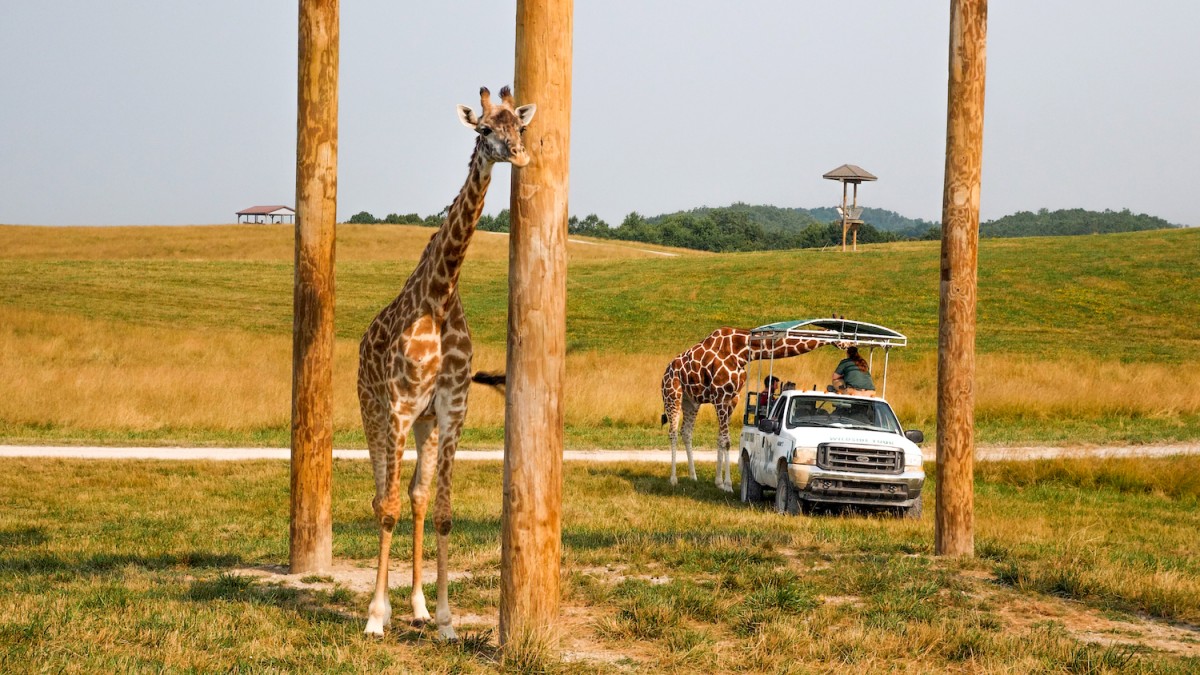The roots of Appalachian communities run deeper than coal deposits, which sustained them for generations. Young leaders coming up in those mountains want to see them thrive once again, but this time the focus is on sustainability.
This article was originally published by The Daily Yonder.
EDITOR’S NOTE:
This article is part of a series of photo essays created as part of the American Creed “Citizen Power” documentary initiative exploring American idealism and community leadership from a range of young adult perspectives.
Jonathan Blair lives, works, and studies at Alice Lloyd College, in Eastern Kentucky. He coordinates a work-study crew of about 60 people, mostly first-generation college students from rural Appalachia. Together with two of his crew members—Jacob Frazier and Carlos Villanueva—they document their connection to blue-collar work in and around the Appalachian coal industry, and they reflect on their hopes for the region.
On January 19 at 4:30pm EST, meet Jonathan Blair and other young adult photographers for a special, interactive photography exhibit and discussion, Connecting Our Heartlands: Toward an Inclusive American Creed.
[Register now for Connecting Our Heartlands]
My grandfathers on both sides were coal miners. My father is a mechanic for one of the railroads that transport coal. Basically, ever since our family has been in these hills, the coal business has put food on our table, and that’s the case for most families in our region. Even if it’s not why they came here, it kind of became what they did, because that was what paid, and you’re going to do whatever it takes.

Survival is a big aspect of Appalachian culture. For a long time, coal meant survival, but there was never a sense of stability because the coal business is like a light switch: it’s either “on” or “off.” And when that switch was off, a lot of people, like my grandpa, would find manufacturing jobs elsewhere, in Ohio and other places. And whenever the coal business picked back up, they would come back, because this is home. Today, you look around and you can see the mountaintops have been removed to extract the coal from them, and much of the coal that was deep in the ground is gone. The coal business is a phantom, a shadow of what it used to be. We can’t rely on it coming back to what it once was.
For Appalachians, other than faith in God and the love of our families, coal has been what we have always leaned on. Now we are having to take a step back and look away in order to move on to the future. Like diamonds, coal takes millions of years to form, so there won’t be much forming in our lifetimes. In fact, it could be exhausted by the end of our lifetimes.
I know very few people my age who go into the industry. The generations before us have warned that no matter how good the money is right now, no matter how sweet of a deal they’ll cut you to get you to work, it’s not gonna last. It can’t last. Right now, the price of coal is up but we’ve seen what happens when the price goes down and industry packs up and leaves.
There is no plan B in places like this. A major concern for my generation is finding that plan B right here in the only place we’ve ever known, because these mountains are home. And it truly is beautiful.







The Appalachian culture has deep roots because, much like the rest of America, this is a land of immigrants who made this their home. People of many backgrounds, colors and creeds were brought together here to build the railroads and pull the coal out of the ground. Over time, bonds formed through our shared labor and sacrifice.
There’s a saying around these parts that goes, “All blood isn’t family and all family isn’t blood.” Coal workers often left their loved ones behind for the opportunities in this region, and although those opportunities have dwindled, many of them formed new families and remain committed to these mountains. That’s how we ended up with this rich culture.

While Appalachians have always wanted to maintain a life and community here, the same can’t be said for the industry we’ve welcomed into this region. You can drive through these mountains and find ghost towns like after the gold rush, abandoned places that were once home to so many people.
A sense of distrust exists between the Appalachian people and outsiders—whether that’s big business or the government. This distrust is deeply rooted and generational because New England businessmen came into the area and ripped a great deal of the coal out of our mountains. When the prices were low enough for them not to bother anymore, they went back home. When it was time for war, the federal government would come into our region and recruit young men, leaving behind suspicion and fear of exploitation among locals. It’s difficult to erase those scars of generational distrust. Many Appalachians fear that solutions presented by new industries or the government will only repeat the exploitation of the past. When you can see the end of the coal industry, it’s frightening. But there are solutions. Fear has to be countered with knowledge and power.


First, we need to rid ourselves of the false notion that these are the worst of times and embrace the power of the progress we’ve made. Every generation in Appalachia strives for their children to have less of a struggle. My great-grandfather hiked across the mountain to Carbon Glow every morning to go to work. My grandfather worked for 20 some years in strip mining. My dad enjoys a more comfortable life on the railroad, and I represent a generation of Appalachians who chose to pursue a college degree instead of going to work in the mines. More of us need to make the shift from a mentality of survival to one of sustainability.




Helping Appalachians make that shift is part of the mission of Alice Lloyd College, where I’m enrolled as a third-year education student. Serving 108 counties in Appalachia, Alice Lloyd College is deeply focused on developing leaders in this region by providing them with a character and work based education. At the college, all work on campus is almost exclusively performed by students. So in our work study program, we have three full-time faculty and staff and beyond that, it is completely controlled by students. The position I hold at Alice Lloyd College is the Senior Grounds Student Supervisor, meaning I completely oversee all grounds, garbage trucks, supplies, and advise roughly half the janitorial operations. I work most directly with the grounds crew, which usually consists of 60 to 100 students all of whom, like me, attend college for free.
Even before we set foot into the workforce together for the first time, every single Appalachian student already has a sense of camaraderie because the same values –a sense of hard work, family, and history – unite us. Almost everyone has their roots in coal or related blue collar work. Almost every single one of us knows what it is like to grow up living paycheck to paycheck, and we want to better ourselves so that our children and future generations never have to live like that.


I plan to become a college administrator. I believe that it is my personal responsibility to stay within the region and to guide more first generation college students toward a character-based, leadership-based education. I believe in a domino effect. If Eastern Kentucky has more educational opportunities, the region can become more open minded to new economic opportunities.
I believe my generation would be more open to a new beginning here. We’ve lived through tangible proof that the world is changing and the climate is changing. We can see that the path we are headed down is not one that will work forever.

In late July 2022, a catastrophic flood hit eastern Kentucky and destroyed a great deal of the region, especially along the creek banks, riverways and lakes where many of us live. We’re still recovering from the aftermath. Not only has the natural world changed, the political and economic world is changing. We have to fill this void the coal businesses left behind so we can keep everyday people around. And even if new opportunities might fail, we have to give them a shot, whether it’s tech, industrial factories or renewable energy. This region is filled with flat, plateau areas, almost like terraces, that were left behind from mountaintop removal. These abandoned areas could prove to be ideal locations for the placement of wind turbines or solar panels and help transition us from our coal-dependent past to a more sustainable future. But to make that future a reality, it’s gonna take the Appalachian people coming together and organizing.
These bones can still survive.
To explore more of Jonathan Blair’s story join him for a special virtual interactive event, Connecting Our Heartlands, Towards an Inclusive American Creed, January 19th at 4:30pm. This program and the accompanying series of viewfinder posts and podcasts is supported by the National Endowment for the Humanities Building a More Perfect Union program. Blair and other young adult storytellers participating in the American Creed: Citizen Power documentary initiative will show and discuss the photographs they’ve created with support from Working Assumptions, a program that supports students in making photographs and writing captions that explore the interplay of work and family in their lives. Curatorial editing and advising for Working Assumptions, Alice Proujansky; for Citizen Film, Manish Khanal.
Publication of this American Creed “Citizen Power” Viewfinder is made possible in part by the National Endowment for the Humanities: Democracy demands wisdom. Any views, findings, conclusions, or recommendations expressed by the Daily Yonder or by Citizen Film, producer of the American Creed “Citizen Power” documentary initiative, do not necessarily represent those of the National Endowment for the Humanities.



